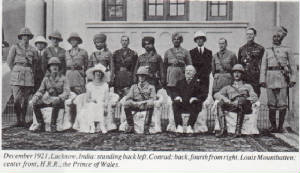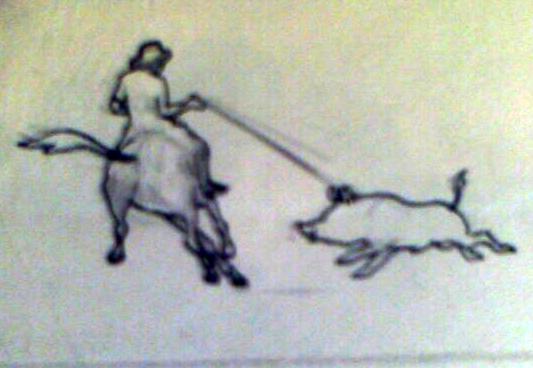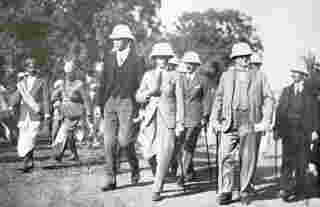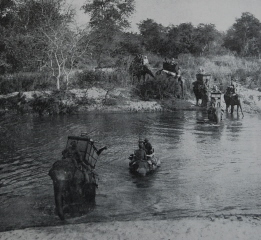
| Home | Lineage and Birth | The early years. | Conrad the Mountee. | 23rd of August 1914 | Captivity Espionage and Escapes | Augustabad | Barry Bingham VC | Conrad meets M | Conrad Assistant Military Atache. | The ffrench Connection | The Last Tigerhunt. | The Archaeology of the Reich | From Intrigue and artifice to Art. | The names Ffrench, Conrad Ffrench. | Ian Fleming | The Black Ore of Death | An Evil Medium | Off the Chessboard. | Arbutus Point. | Conrad retires to the field | The Art of Conrad O'Brien-ffrench | The Quotient of Conjecture. | News and Gossip | Bookshop & Bibliography | Mailbag | Related Links | Contact Me | ||||||||||||||||||||||||
|
Conrad Fulke O'Brien-ffrench. Artist and Spy. |
||||||||||||||||||||||||
|
The Last Tigerhunt.
|
||||||||||||||||||||||||
|
|
||||||||||||||||||||||||
|
With
rumours of drastic cuts in the air, and having seen his friend Lord Acton's
diplomatic career end so abruptly the previous year, Conrad applied for leave.
He arrived back in He recalls
early one morning after yet another grand party, finding caviar sandwiches and
a champagne bottle on his desk, literally the breakfast of Kings. The Prince
had risen early and was out knocking a polo ball about with Fruity Metcalfe,
the Prince's new friend and personal aide-de-camp. Conrad fulfilled his duties
with aplomb and became a trusted part of the future King’s retinue. He tells
how at dinner he occupied the humble end of the lengthy table and was seated
next to Lord Louis
Mountbatten – another chance meeting with a major player in the drama to
come. The exalted end was occupied by the Prince with the Governor, Sir Harcourt Butler,
Lord Cromer, Sir Lionel Halsey, Godfrey Thomas, Piers Legh and guests with a
smattering of Indian Princes. He complains that his duties often took him away
from such parties early to greet arriving guests. Conrad describes the ADC as
“a fool, a footman and everybody’s friend!“ The duties of the aide-de-camp are
defined in the Conrad’s
time in
|
||||||||||||||||||||||||
|
|
||||||||||||||||||||||||
|
Enter supporting content here
|
||||||||||||||||||||||||






